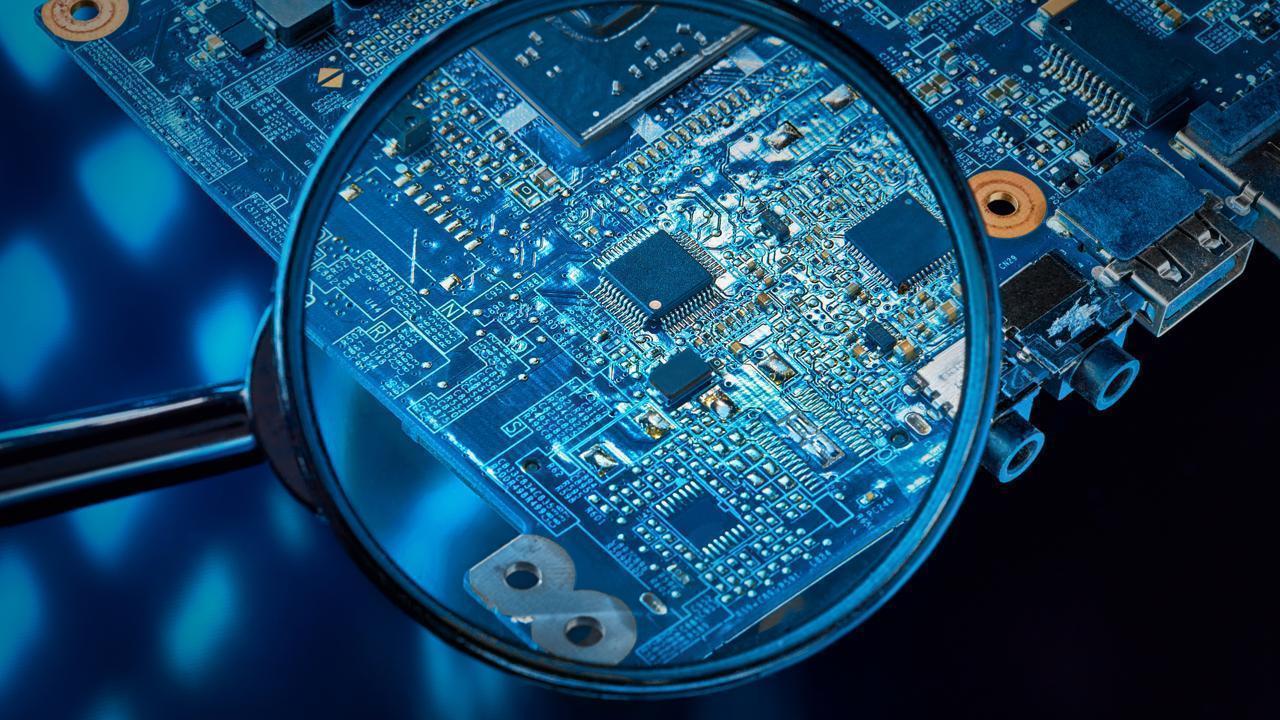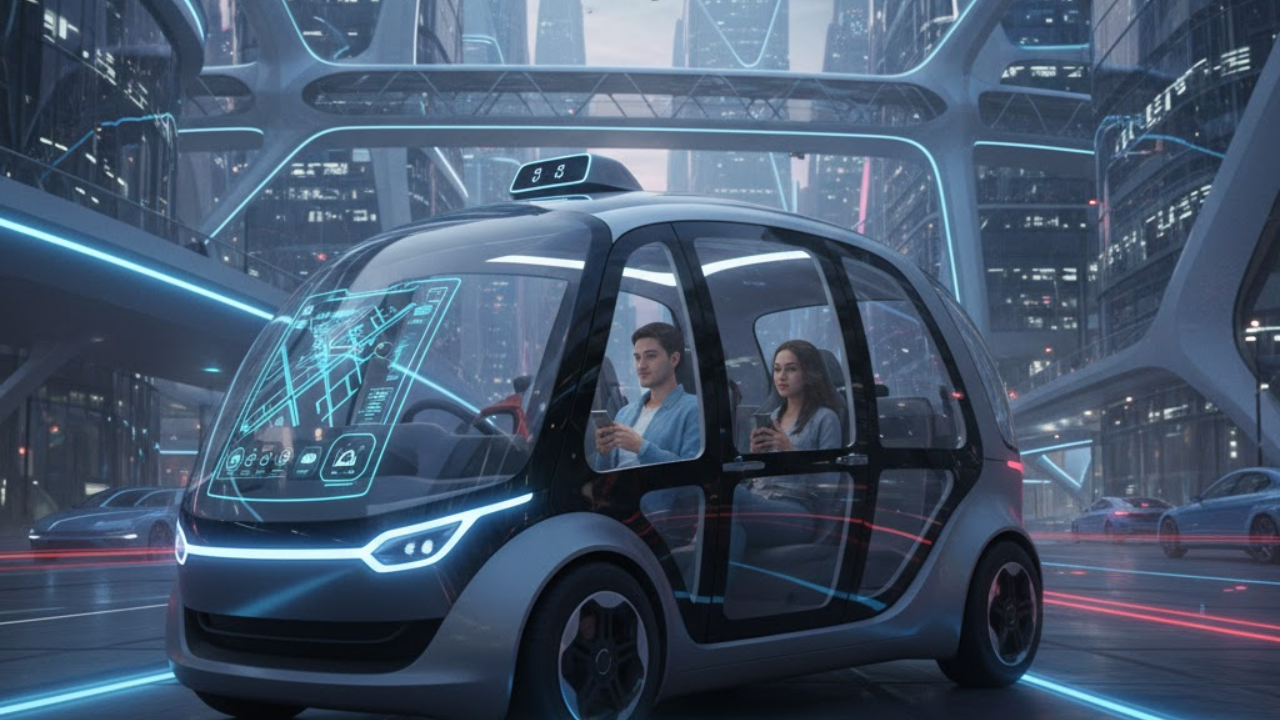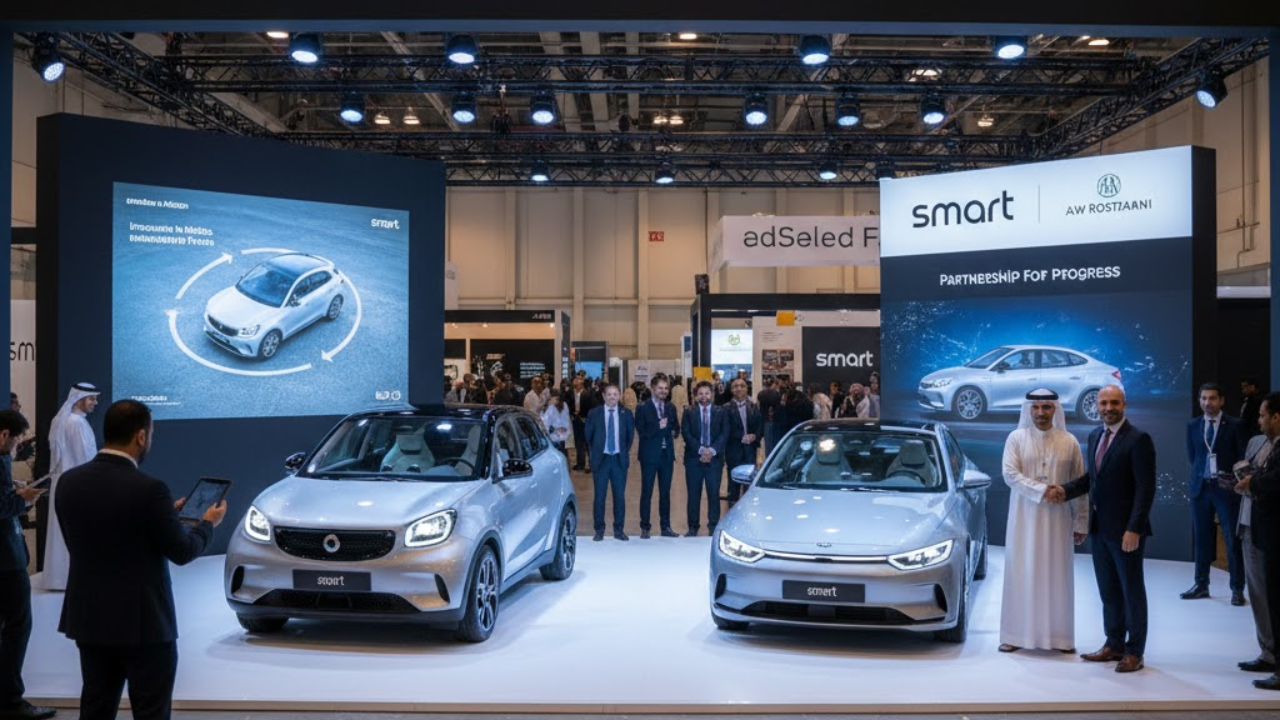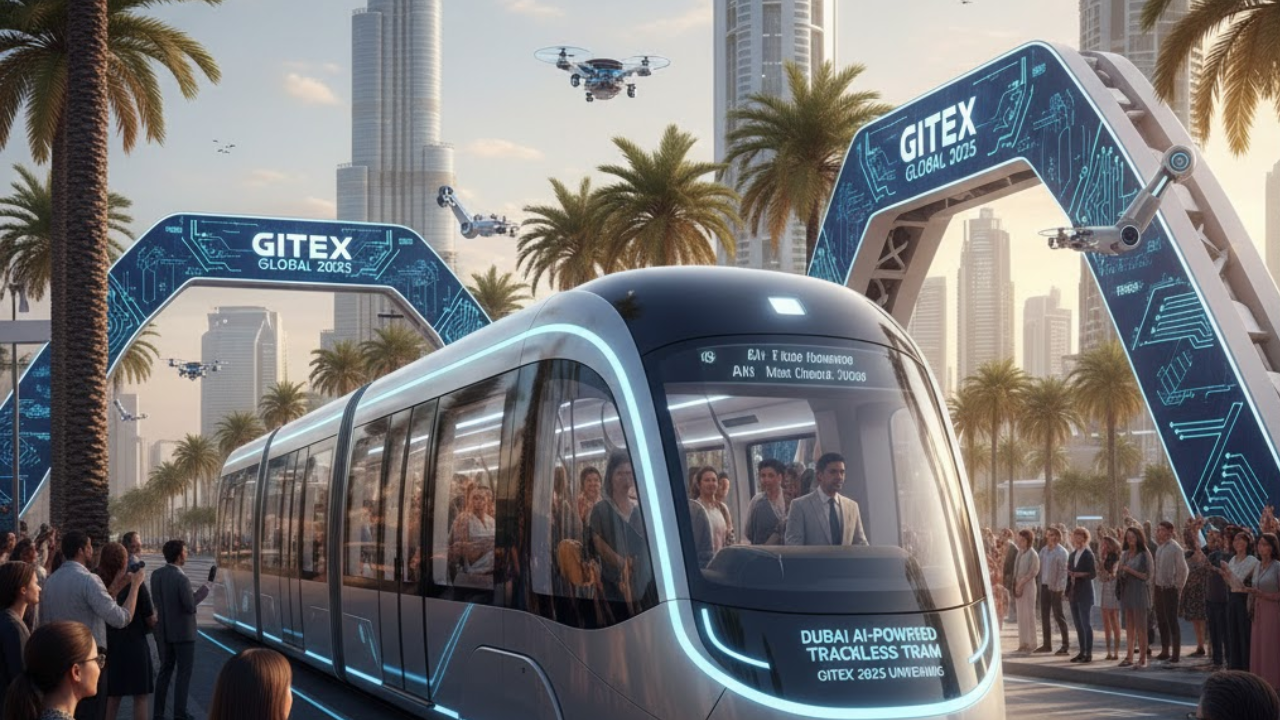
Post by : Amit
A Strategic Alliance Set to Redefine In-Car Intelligence
Continental, the German automotive systems giant, has joined forces with Ambarella, a U.S.-based AI semiconductor leader, to co-develop a next-generation lineup of high-performance ECUs powered by Ambarella’s CV3 AI system-on-chip (SoC). This collaboration, announced jointly on July 16, 2025, aims to accelerate intelligent cockpit experiences and advanced driver assistance systems (ADAS) integration in premium and mid-range passenger vehicles.
With digitalization rapidly reshaping the automotive cockpit, OEMs are under growing pressure to deliver not only safer vehicles but also richer, more personalized user experiences. This is where Continental’s domain controller expertise and Ambarella’s computer vision and neural network acceleration converge. The CV3 SoC is engineered to deliver high-speed AI inference for both vision-based safety features and user-facing functionalities such as gesture control, adaptive HMI (Human-Machine Interface), and environmental perception—all in real-time.
Inside the CV3 System-on-Chip: A Leap in AI Processing
Ambarella’s CV3 chip is built on a 5nm process node, giving it an edge in both computing density and energy efficiency. It includes a dedicated AI engine capable of 200 TOPS (trillions of operations per second), a multi-core Arm Cortex CPU cluster, and a next-gen ISP (Image Signal Processor) designed to handle ultra-high-resolution sensors and multiple camera streams simultaneously.
This performance is vital as vehicles now generate gigabytes of data per second—from radar, Lidar, ultrasonic sensors, and HD cameras. Traditional ECUs often struggle with thermal constraints and processing delays, especially under simultaneous load from multiple subsystems. Ambarella’s CV3, on the other hand, was designed to cope with these very requirements. By integrating it into its ECU portfolio, Continental aims to offer automakers a compact yet powerful brain for software-defined vehicles (SDVs).
Continental’s ECU Evolution: From Passive to Predictive
Continental’s involvement goes beyond simple integration. The company is engineering the new ECUs as central domain controllers—multi-functional hubs that not only connect various subsystems but also coordinate them using predictive algorithms. These ECUs will unify functions including adaptive cruise control, lane-keeping assistance, autonomous emergency braking, and traffic sign recognition under one AI-driven umbrella.
The integrated CV3 chip allows these controllers to execute perception tasks faster and more accurately than previous architectures. For instance, during fog or heavy rain, when visual data becomes noisy, the CV3’s neural network can adapt and reconstruct scene awareness more reliably than traditional deterministic models.
Modular Design for Global OEM Adoption
A key feature of the new ECUs is modularity. Continental and Ambarella are co-developing them in tiered formats—ranging from entry-level to flagship configurations—to accommodate a variety of OEM budgets and regional compliance requirements. These modules are hardware-ready for Level 2+ and Level 3 autonomous functionalities and are supported by Continental’s OTA software architecture, ensuring post-sale feature upgrades and patching capabilities.
The first ECU prototypes with CV3 chips are currently being tested with two undisclosed European automakers. Volume production is expected to begin in Q1 2026, with additional customers in North America and Asia-Pacific reportedly in talks.
Driving the Future of Safety and Personalization
According to Frank Petznick, Head of Continental’s Advanced Driver Assistance Systems (ADAS) business unit, “This partnership brings together Continental’s deep automotive domain knowledge with Ambarella’s AI acceleration expertise. Our new ECUs will not only enhance in-cabin user experiences but also dramatically improve perception and decision-making for automated driving.”
Petznick noted that the technology will empower drivers with enhanced situational awareness. Features like intelligent surround view, AI-driven parking assist, driver monitoring, and real-time hazard recognition will be standard. In future iterations, integration with V2X (Vehicle-to-Everything) protocols is also planned, enabling predictive path planning based on external data sources.
Ambarella’s Automotive Push Gains Momentum
For Ambarella, the partnership with Continental is a strategic win in the high-stakes automotive AI race. Known for its success in drones and security camera processors, the company has been aggressively expanding into the automotive market over the past three years. The CV3 SoC series is part of that long-term push, positioned as a scalable family of AI chips to meet the processing demands of software-defined vehicles across segments.
Ambarella’s CEO Fermi Wang emphasized the importance of Tier-1 partners like Continental. “Our collaboration helps transform our raw silicon innovation into real-world automotive safety and intelligence. Continental’s systems engineering strength and integration scale ensure that CV3 reaches the road in the most impactful way.”
Wang also revealed that Ambarella will be offering dedicated software SDKs and optimization support to automakers and system integrators, enabling them to tailor experiences to their brand ecosystems.
Software-Defined Cockpits and the Road Ahead
One of the most exciting implications of the new ECU platform lies in intelligent cockpits. As the line blurs between infotainment and safety systems, CV3-powered ECUs will enable AI-driven personalization—adjusting displays, lighting, and audio profiles based on driver identity and behavior. Voice recognition will be edge-processed, reducing latency and improving privacy.
With generative AI making its way into vehicle assistants, Continental is already exploring how the CV3 can support large language model integration at the edge. Imagine a driver asking the car to suggest scenic routes based on mood, current time, and battery level—and getting a coherent, safe recommendation that integrates with ADAS and navigation data in real time.
Cybersecurity, OTA, and Functional Safety
Continental confirmed that the new ECUs are compliant with ISO 26262 (ASIL-B/D) for functional safety and ISO/SAE 21434 for cybersecurity. Secure boot, hardware root-of-trust, and AI watchdog modules are all built into the architecture.
The ECUs also support fast OTA updates via Continental’s remote management platform, allowing continuous evolution without garage visits. This is crucial in a world where safety systems need to respond dynamically to emerging road patterns, edge cases, or regulatory changes.
A New Standard in ECU Architecture
As cars transition from mechanical platforms to intelligent edge devices, the role of ECUs is undergoing a radical transformation. No longer just silent facilitators of specific vehicle functions, ECUs are now expected to orchestrate dozens of interrelated tasks, from real-time perception to predictive decision-making and personalized interaction.
Continental’s partnership with Ambarella signals a clear departure from legacy, siloed vehicle computing. Instead, it embraces a future where AI is embedded into the very core of automotive function—efficiently, securely, and updatable over time.
Implications for OEMs and the Tier 1 Ecosystem
For automakers, this collaboration reduces time-to-market for high-performance, AI-ready vehicles. The ability to source pre-integrated, field-tested ECUs means lower R&D overhead and more time spent refining brand differentiation rather than building basic infrastructure.
For the Tier 1 ecosystem, the success of this partnership could signal a broader shift toward deeper collaborations with silicon vendors. As AI becomes a central pillar of vehicle design, having early access to chip roadmaps and optimization tools will be critical.
A Catalyst for Next-Gen Mobility
Continental and Ambarella’s union marks more than just a product announcement—it sets the tone for the next wave of automotive electronics. A wave where intelligence is distributed, decisions are real-time, and every mile driven is a mile learned.
By fusing the CV3 chip’s AI muscle with Continental’s deep vehicle domain expertise, this partnership is poised to accelerate not just cars, but the entire industry’s transition to safer, smarter, and more adaptable mobility.
As consumer expectations rise, regulations tighten, and technology evolves faster than ever, such partnerships will be the scaffolding on which the future of transportation is built—one silicon wafer and one ECU at a time.
Ambarella, AI, Vehicle ECU










Bengaluru-Mumbai Superfast Train Approved After 30-Year Wait
Railways approves new superfast train connecting Bengaluru and Mumbai, ending a 30-year demand, easi

Canada Post Workers Strike Halts Nationwide Mail and Parcel Services
Canada Post halts operations as CUPW strike disrupts mail and parcel delivery nationwide amid disput

PM Modi Launches BSNL ‘Swadeshi’ 4G Network, 97,500 Towers Built
India enters global telecom league as PM Modi inaugurates BSNL’s indigenous 4G, connecting 26,700 vi

India’s Iconic MiG‑21 Takes Final Flight After Six Decades of Service
After 60 years India retires its MiG‑21 fighter jet, a legendary yet controversial warplane marking

Hindustan Zinc unveils AI hotspot monitoring at Debari smelter
Hindustan Zinc launches AI-powered Switchyard Hotspot Monitoring at Debari smelter to cut outages bo

Chinese experts worked inside sanctioned Russian drone plant
Chinese drone specialists visited IEMZ Kupol supplying parts and drones via intermediaries, deepenin